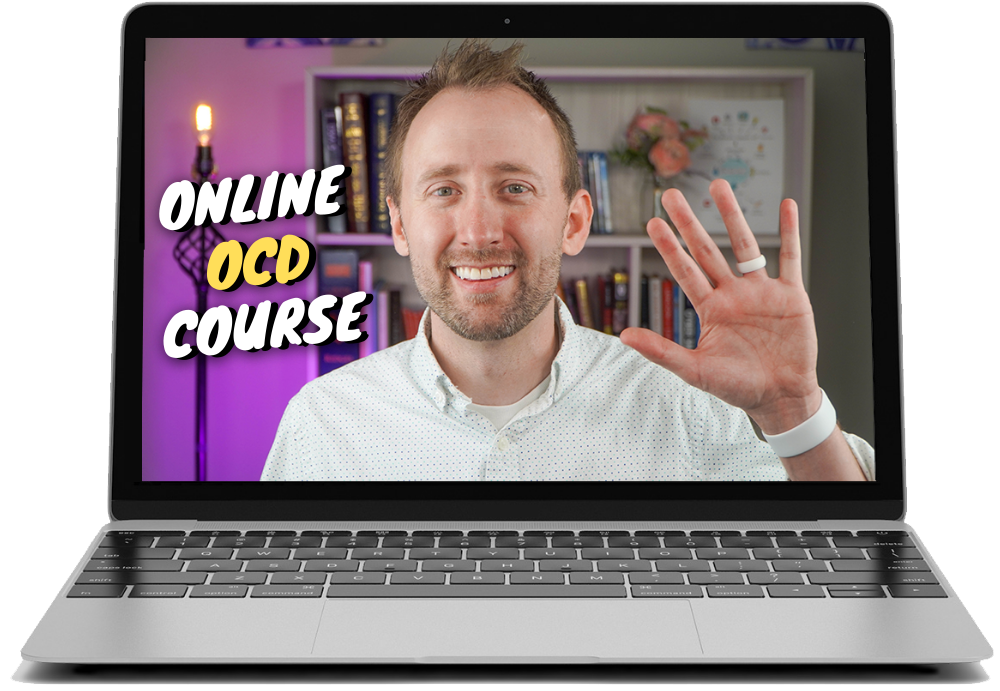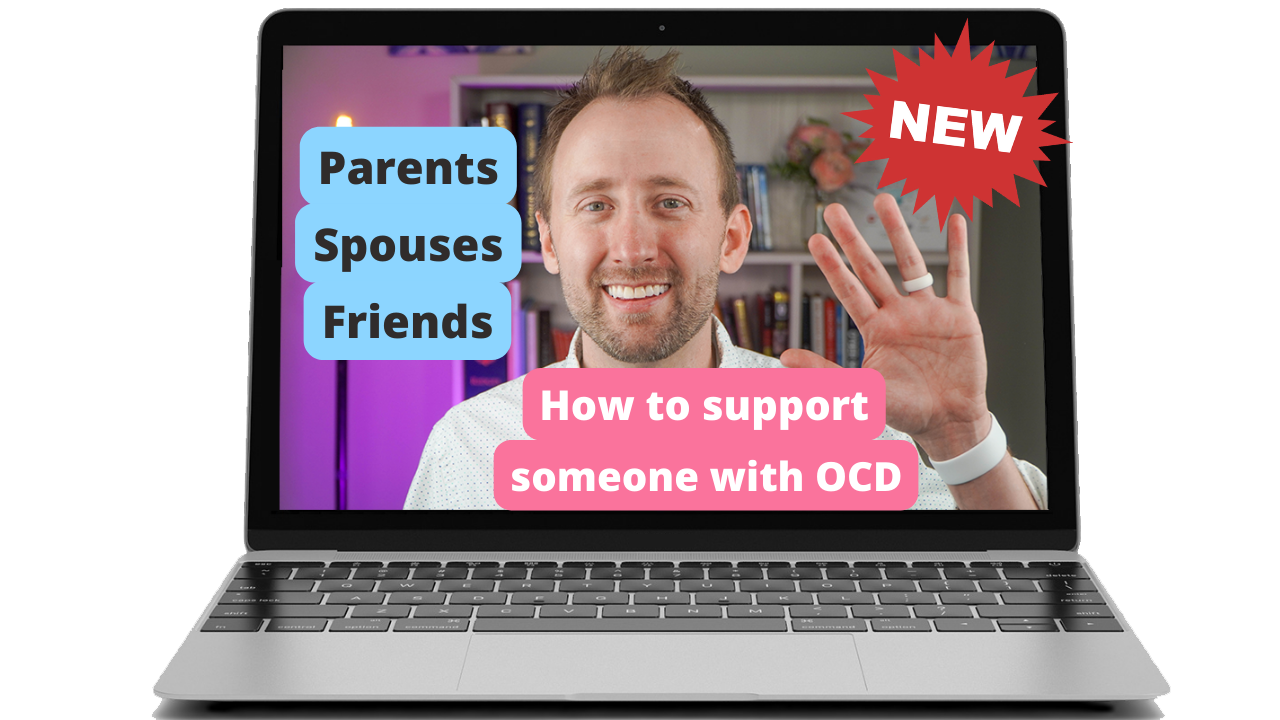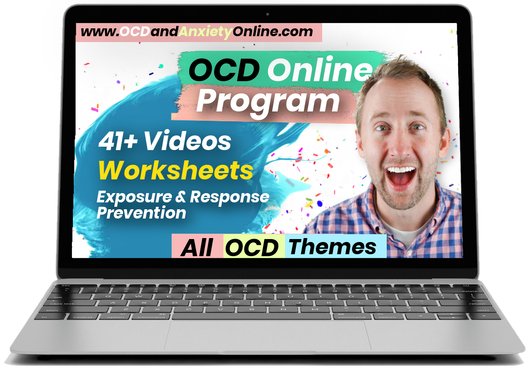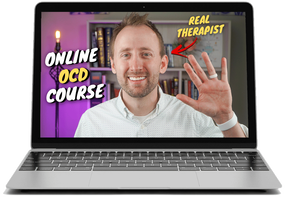Are my thoughts really true? OCDDo you own your thoughts, or do your thoughts own you? Every thought you have has validity of who you are and what you wanted to think of...right? Errrrr Wrong! There is a point where you have to look at the behaviors you're doing because of the thoughts and see who has ownership. Here is what I mean! The thoughts that cross you remind predict your actions. We either are going to push a thought away or do an action or a behavior because of the thought. Intrusive thoughts are thoughts that we don't really want but we have them anyway. They come and go as they please. The thoughts we give attention to are the ones that want to stick around. But we don't always react to our thoughts. If we did, wouldn't we really be our thoughts? For example...I'm sitting at a restaurant and am looking at someone's food. I'm hungry, my food hasn't gotten here yet. I have the thought, I should go over there and take a piece of bacon. I wonder what would happen. I have feelings, I have thoughts....you know what I don't have....the action. This tells us that we ACTUALLY have a choice. I can see that thought as random noise. meaningless. Because a thought is a thought. Here is a literal definition of a thought. It is merely an idea or opinion created by your mind. It is sudden and spontaneous and has no particular origin. Wow. think of that. This thought has no home. It's a random collection of thoughts that can cause real emotions which make us doubt and question something. So who is owning your thoughts? Well in one way, you do. In another way. No-one does. It has no where to go until we do an action to put it in it's place or just let it fly on by. When it comes to these intrusive thoughts, they can be about anything and cause extreme doubt, which make you believe they are valid. These random thoughts can be toward relationships, getting sick, possible harm, memories, and even responsibilities. When these thoughts don't match your value system we need to treat them as fluff. Nothing. Garbage. A random signal. Meaningless. Once we attach to it and attempt to figure it out, it's going to happen more and more and more. That is when these thoughts own you. You're doing behaviors to remove the thought or perceived threat. Let me tell you why it's important to recognize that you aren't your thoughts. If I take every random thought and run with it. I'm going to be convincing myself that I'm a monster pretty darn quick. If I pass by a girl and my brain says, "wow, she's cute" my brain tries to make sense of this. It's going to say, "well, you must not love your spouse" or you "just cheated" OR I could say, "hey, thanks for the thought today brain." Ultimately, we need to stop taking our brain so seriously. It's screaming out thoughts just to get your attention and says they all mean something, but you're not going to fall for it anymore. Let's actually own these thoughts by giving these types of responses: "sup thought" "coolio, thanks for that." "yep, I guess that could happen" "maybe, maybe not." "you're welcome to stay thought" You're also practicing now pushing them away or making since of them. You're not giving them a good home to burrow into. Once you say, this thought has meaning. It just snuggles right into bed with you. Taking the opposite and not giving it a great answer and just letting it pass on by...it moves over to the neighbors.....no neighbor. It may stick it's head over the fence to try a few more times. But that response of "I do not care" is important so it knows, "man, you can keep trying, and I'm willing to listen to you, but I'm giving you nothing." But Nate! How will I know when it's a thought I actually need to pay attention to? Well, here's my indication. Anxiety mixed with an urge to know. It's a trap! Anxiety always tell the brain the thought is dangerous, BUT here's the kicker. If you don't actually see the danger right in front of you, and I mean it. RIGHT IN FRONT OF YOU. It's not super obvious. Then, we're treating a thought as a thought and allowing it to pass. If you treat a thought as a thought, but try to push it away, you're saying it has value. We don't want to do this. Give yourself more grace for having a thought. No really. Enjoy your life. Enjoy your brain and all the processes it does. the positive thoughts and even the negative ones. Our brain isn't trying to hurt us. Instead, it's actually attempting to help. It's just not doing a great job at it at times. Our job is to retrain it by the responses we give. That response is the most important thing in all of this. Think about this with the next thought you have that causes some distress. My action right now is going to determine if this is important or not. Choose wisely. The next time you have intense intrusive thoughts and you're trying to figure out what you're going to do with them....remember that you don't have to do anything. You have a choice if your thoughts are going to own you or if you're going to own your thoughts. Did you know there are at least 3 types of intrusive thoughts? I made a video about these and how to actually get them to slow down. You're going to need to enhance these skills so you can become even more of a boss! How to own your own thoughts
0 Comments
Exposure Therapy For OCDWhen somebody is facing their fear, they repeat this process over and over again their body tends used to it. We’ve seen this in many different ways such as jumping into a really cool swimming pool. At the very beginning it is very cold but their body adapts and get used to it. We didn’t have to spend time convincing ourselves it was going to get better, it just happens. This can be seen when we are using exposure and response prevention. When you are exposing yourself to the upsetting fear it’s going to feel very difficult at the beginning. Overtime, you may face the same fear but notice that the anxiety level is a lot less. This is seen as the habituation model. That we essxentially are doing exposures to reduce your anxiety by half or more. You’re getting used to it, you’ve taken the value away from it. When it comes to the habituation model, it’s all about this anxiety reduction in your body adapting just like the swimming pool. We will often use us as a measure of success if you were doing exposures correctly. If you’re anxiety is reducing this is a good thing. There are definitely some drawbacks from using the habituation model. Anxiety is something that we want to take value away from as well. If we are focusing solely on anxiety and having us go up and down individuals can get stuck in paying attention to the anxiety and wondering if they are doing the exposure correctly or not. Let me start obsessing about the actual anxiety versus the actual fear. Many will start to question and wonder why they’re in anxiety is not reducing. Well evidence shows that the habituation model does work, individuals can you get stuck with these pitfalls often. This is why there is another approach to exposure and response prevention called inhibitory learning. While this is still being researched there is evidence that shows that this helps reduce OCD symptoms as well. The difference is not the actual exposure you were doing but rather the way you were approaching it. With the inhibitory learning model you are teaching your brain more than reducing anxiety. Exposures are all about what can your brain learned from this experience. It doesn’t matter if your anxiety reduces or not. It might not even matter if you have anxiety while you’re doing the exposure. The whole mindset is all about your brain learning something new. So if I was facing a fear that really caused some anxiety, the way I approach is designed is to face the fear, expose yourself to it and RESPOND differently to the fear. You sole focus is what am I teaching my brain by every movement, words I’m saying, what I’m thinking, how I’m behaving. If I avoid touching something because it’s contaminated, my brain learned that that thing is dangerous. If I touched it and acted like it wasn’t a big deal and didn’t do any compulsions, then my brain learns it’s not a big deal. You may learn time and time again that you faced your fear and NOTHING happened. That is what the brain is learning. If you’re confused by the two, here is an easy way to remember: The habitual model means your body is getting used to it and your anxiety is reducing. Inhibitory learning model means your mindset is all about what your brain is learning from the exposure regardless of the anxiety felt. Realistically, there isn’t the right choice comes to do an exposures. You do what you feel like is best for you. I have used both models together where I focus majority of my time making sure that the person knows that the brain is learning something. We use anxiety as a measure but ultimately it doesn’t matter if the anxiety reduces or not. If your brain can learn that the fear that you have is not happening and it is it because you’re trying to control the situation what is the compulsions and to me that’s one of the best ways to do an exposure. Let things be. Stop controlling. It feels like an experiment, but the experiment is worth taking for your brain to learn something major. That you’ve never been a danger. Inhibitory Learning For OCDHabituation For OCDHow To Stop Ruminatingmination is essentially trying to problem solve the perceived threat or fear. It’s not as easy to just say, “stop ruminating”, so here are some tips for you when you feel like you’re stuck in the OCD rumination.
Schizophrenia OCDSchizophrenia OCD, Psychosis OCD, or plain ol’ “Am I going crazy” OCD. Whatever you call it, it can be very distressing to those to experience it. OCD can make someone believe anything. Even make you believe that you may be going crazy. You may even wonder if you’re hearing voices or seeing things that aren’t there. Let’s go through what it looks like and how to do the treatment. Check Out The Online Course For OCDPsychosis OCDGoing Crazy OCDHow to remove guilt from OCDIt’s pretty natural for individuals with OCD to feel guilt. This guilt can make them believe that the intrusive thoughts and feelings must mean something great. This feeling of guilt can be such a roadblock for many individuals going through treatment. Let’s go through what to do when guilt hits you during your OCD. Guilty feelings with OCDRemove guilt from OCDHow To Stop A Panic AttackDo you know what to do during a panic attack? Did you know there is treatment? It might look different than you’ve expected. Panic attacks can happen at any time and can often be mingled with stress, anxiety, or OCD. Let’s go through Panic Attacks, why you have them, and what to do with them. What to do during a panic attackTreatment for panic attacksGroinal Response With OCDThe groinal response can seem tricky to navigate through. I mean, people want to put meaning and power on what's happening "DOWN THERE". In response to sexual intrusive thoughts, it is natural to want to know what is happening. With movements, tingling, blood flow, and all of that, how can this be ignored? Let's go through what the groinal response looks like and how to do treatment for it. 🖐🖐Check out my ONLINE self-directed program for OCD🖐🖐 👉👉 https://www.OCDandAnxietyOnline.com 👈👈 Arousal with OCDFear of being arousedOCD Is A BabyI often think of OCD being a spoiled child. It's relentless; it doesn't seem to want to give up. I want to teach you some tricks to get your OCD to calm down and be less intrusive. It's a simple concept but tough to implement time after time. Topics discussed: 👉How your OCD is a winey baby 👉Why OCD is relentless 👉How “No Thanks” can be effective. 👉The power of using ‘maybe, maybe not” with your OCD. 👉How to teach your OCD that you’re not giving in. 👉How to take power away from your OCD. 👉Respond to your OCD the same way. DISCLOSURE: Although I am a licensed therapist. This video is not intended to replace medical advice. This is for information purposes only and should not be used to replace the guidance of a local mental health professional.⠀ OCD is a spoiled childHow to respond to your OCDStop Competing With Your OCD
OCD is LOUD! It tries to rattle you and the more you "fight" or try to make sense of it the more it becomes louder. Both competing to see who wins or who can be the loudest. Instead of competing what if you tried being quieter?⠀
Topics discussed:⠀⠀
Remember, when it comes to your OCD; it is your job to "Face The Unknown".⠀ ⠀⠀ DISCLOSURE: Although I am a licensed therapist. This video is not intended to replace medical advice. This is for information purposes only and should not be used to replace the guidance of a local mental health professional.⠀⠀ Harry Potter and OCD
There are many scenes in Harry Potter that can show how OCD works without knowing it. ⠀ A scene with the devil's snare shows OCD, compulsions, and the struggle.⠀ ⠀
Devil's Snare is an extremely dangerous plant that will, as suggested by its name, ensnare wizards when disturbed. It strangles those who approach it by wrapping them in its tendrils.⠀ ⠀ Topics discussed:⠀⠀ Comparing OCD to the Devil's snare from Harry Potter.⠀
Remember, when it comes to your OCD; it is your job to "Face The Unknown".⠀ ⠀⠀ DISCLOSURE: Although I am a licensed therapist. This video is not intended to replace medical advice. This is for information purposes only and should not be used to replace the guidance of a local mental health professional.⠀⠀ |
AuthorNathan Peterson specializes in working with OCD and Anxiety related disorders and has done so for the past 7+ years. Archives
January 2023
Categories
All
|





 RSS Feed
RSS Feed